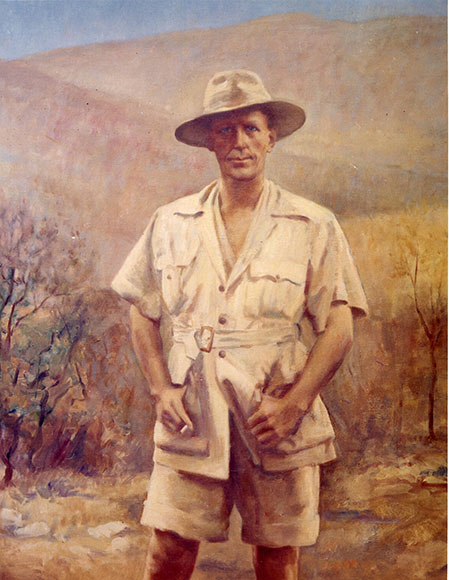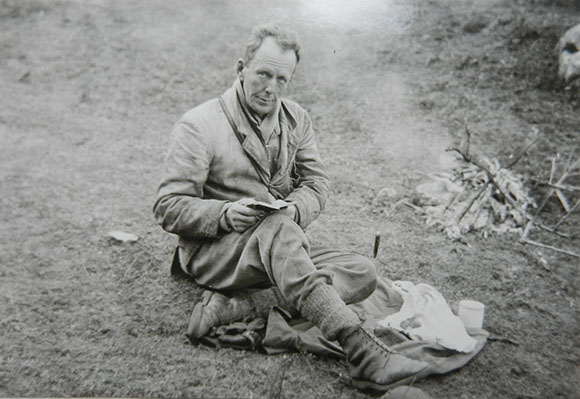Helen visited Brock regularly in the winter months, and he spent the summers in England on leave. During the 1920s, they moved houses three more times, ending up in Burwash, Sussex where Rudyard Kipling was an occasional visitor. It was there, in 1926, that their only son, John Ogilvy, was born.
1931 was a bad year for Brock. He lost his job as Game Warden and Helen divorced him on the grounds of adultery. He returned to Swythamley to live in Roches House on his brother’s estate. In 1934, he toured the United States and Central America. Whilst in New York he dropped in on Kermit and Theodore, sons of President Teddy Roosevelt. They had been the first Westerners to shoot a Giant Panda. Brock was impressed and decided to become the first Briton to do likewise. With the support of the Natural History Museum he left for China in December 1934 and by the next April had succeeded in his quest. The panda went on display in London and Berlin between 1936 and 1938. Hitler was one of those to admire it and Goering is rumoured to have wanted to buy it. It can now be viewed in Macclesfield. In 1936, Brock set up a private zoo round his house with surplus stock from Whipsnade Zoo in Bedfordshire. The most famous inhabitants were the wallabies which continued to roam the Peak District until recently.
When the Second World War broke out in September 1939, Brock volunteered his services to the Army, even though he was in his fifties. When he was not accepted, he joined a voluntary ambulance team in London for a few weeks until he was recruited by Maxwell Knight to join MI5 as special agent. Then in August 1940, he was sent to Southern Abyssinia to get the tribes to rebel against the Italians. For this he was given a temporary rank of Lieutenant Colonel. Unfortunately his intention to give the tribes a degree of independence didn’t go down well with Emperor Haile Selassie who protested to Churchill, and Brock was forced to abandon his mission.
After a short while in Mogadishu Brock was sent to Burma in August 1941 to join Mission 204, which aimed to provide military assistance to Chinese troops in their struggle against the Japanese. When the Japanese attacked Burma, Brock was put in charge of a Special Service Detachment with the task of resisting the invasion. By April 1942, they had reached his headquarters near Mandalay and Brock and his men were forced to withdraw. During this retreat he disappeared, presumed drowned. It took two years and many interviews of the few survivors before his death was confirmed as 28 June 1942. He is commemorated on the Rangoon Taukkyan War Memorial and on Hanging-Stone in Swythamley.
Our thanks to Swythamley Historical Society for the text and Johnny van Haeften for the images.


